As Japan deals with a massive rise in inbound tourism, a rather ugly side to the country’s popular culture is rearing its head. Part of this is due to pure ignorance and part is an ingrained belief among many — especially the movers and shakers of the entertainment world — that Japanese culture is “unique” and “superior”. While the so-called nihonjinron (“theory of the Japanese”) has thankfully lost a lot of its academic kudos in the past few decades, it still holds a lot of sway in mainstream minds.
So some Japanese people are astonished to learn that Japan is not the only place with four seasons or that people outside Japan can also use chopsticks.
We have seen a large increase in TV shows focussed on how non-Japanese view Japan, often edited or produced to show Japan in a positive light, and/or non-Japanese attempts to replicate Japan in a negative way.
The recent edition of TBS show “Bukkomi Japanese”, broadcast on December 29th, was a prime example, ostensibly showing “Fake Japan” from around the world.
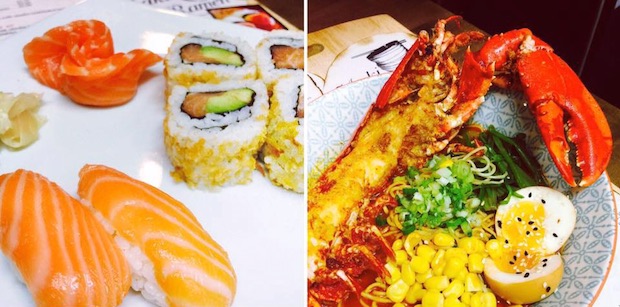
One of the places it highlighted was a small Japanese restaurant in Edinburgh. It proceeded to intone in melodramatic narration how crazy this establishment was. The dishes they serve at Maki & Ramen Sushi Bar are not correct Japanese cuisine and the prices are far too expensive. For crying out loud, they serve ramen with whisky and other wacky local variants! They even serve Korean-made instant noodles to innocent paying customers!
There was just one problem. It wasn’t true.
Maki & Ramen Sushi Bar is a genuine ramen restaurant that also sells sushi — okay, that in itself is an unusual combination but there are countless types of wacky and innovative ramen and sushi restaurants in Japan too — and what was shown on the TV program was essentially done for entertainment purposes at the specific requests of the director.
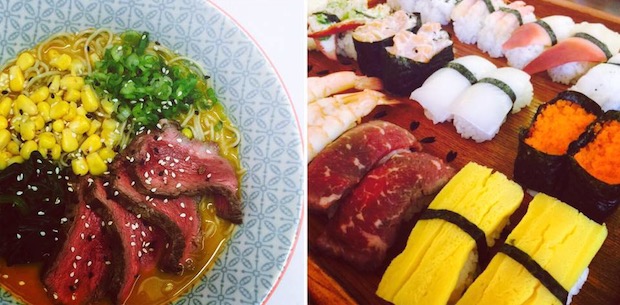
The owner and head chef, Teddy Lee, found out how they had been presented and responded with posts on Facebook (since deleted). In the posts they explained how they were asked by the director to use instant noodles and a certain sauce — none of which they normally use. In fact, they say, their ramen dishes are cheaper than the standard because they are in a student area. The dishes like “breakfast ramen” and ingredients like whisky were all added at the behest of the Japanese TV crew in order to make what they were told was a comedic piece of entertainment with some local Scottish touches.
Little did they know that they were being used as part of a pseudo-documentary report about a “fake ramen” restaurant.
The issue here, though, is not just that television (Japanese or otherwise) exploits and deceives people. The issue is one of misunderstanding. Even if Maki & Ramen Sushi Bar had been serving whisky with ramen, that would not have been “wrong”.
When any culture and food travels, it changes. And so you get California roll or the curries that many British people happily consume thinking they hail from the Indian subcontinent.
This happens in Japan too, as any trip to a foreign cuisine restaurant will reveal. More often than not, the menu choice and ingredients are adapted to local tastes. It’s a natural and positive part of appropriation and diffusion. It should not be mocked as “fake” or inadequate by any party. This is the same kind of discrimination that creoles and pidgins faced to receive recognition as linguistically valid, not to mention hyphenated cultural identity in general.
Japanese TV already has a reputation for producing badly acted, cheap-looking drama, as well as wacky game shows and news coverage that frequently overlooks what’s most important. Now it is also gaining a reputation for racial discrimination that can only harm Japan’s global standing. Along with the surprisingly common use of quaintly racist motifs in advertising by major corporations like Toshiba and ANA, Japanese TV needs to grow up fast in terms of the way it views non-Japanese culture. Otherwise visitors to Tokyo are going to get a shock in 2020 when they turn on the television in their hotel room.

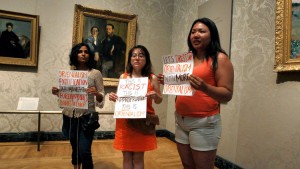
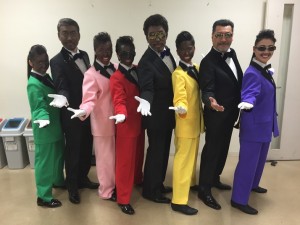
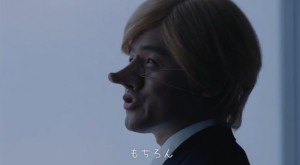





















3 Comments
“Japanese TV already has a reputation for producing badly acted, cheap-looking drama, as well as wacky game shows and news coverage that frequently overlooks what’s most important. Now it is also gaining a reputation for racial discrimination that can only harm Japan’s global standing. Along with the surprisingly common use of quaintly racist motifs in advertising by major corporations likeToshiba and ANA, Japanese TV needs to grow up fast in terms of the way it views non-Japanese culture. ”
Likewise, when any form of entertainment travels, it changes. More often than not, the quality of acting and narratives are adapted to local tastes and viewpoints. It’s a natural and positive part of appropriation and diffusion. It should not be mocked as “cheap” or “racist” by any party. This is the same kind of discrimination that Muslims face to receive recognition as members of a progressive faith, not to mention hyphenated cultural identity in general.
The author of this article should seriously check his White, Western Imperialist privilege before being given any sort of platform in the future.
As a ramen appreciator living in Edinburgh, I am very upset to hear that my favourite restaurant, Maki&Ramen, had been ridiculed on television somewhere. I am all the more pleased to see an independent party setting the record straight. It is very upsetting that Maki&Ramen should have been subjected to this especially, since Maki&Ramen probably make the most authentic ramen in town.
I share the authors views regarding Japanese Culture as well. It has nothing to do with “White, Western Imperialist privilege” what so ever. Not everything in the blogosphere must speak about literally every issue and every minority group out there. You can make a similar argument with respect to how Muslims are portrayed in many countries in Europe, but that does not discredit this post about a small business in Edinburgh selling delicious ramen, who have been tricked by some media company and have had their image tainted for it.
Maki Ramen definitely does serve instant ramen, at least they did when i went. they also charged me 9 pounds for it. it’s not “altered to cultural taste” or whatever, it just sucks